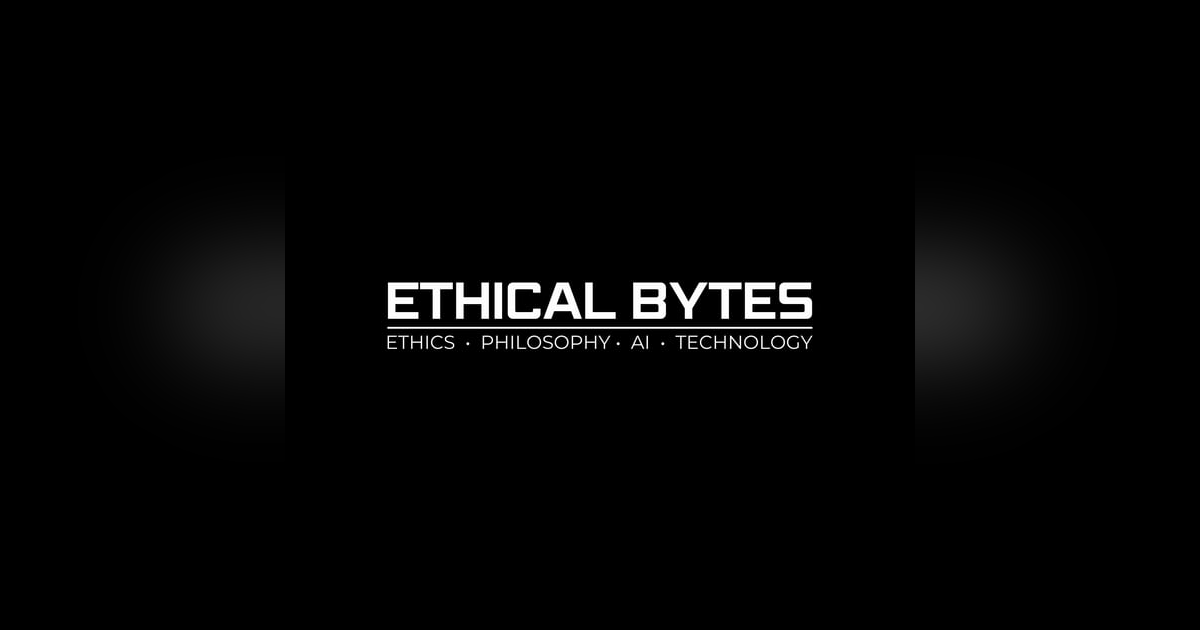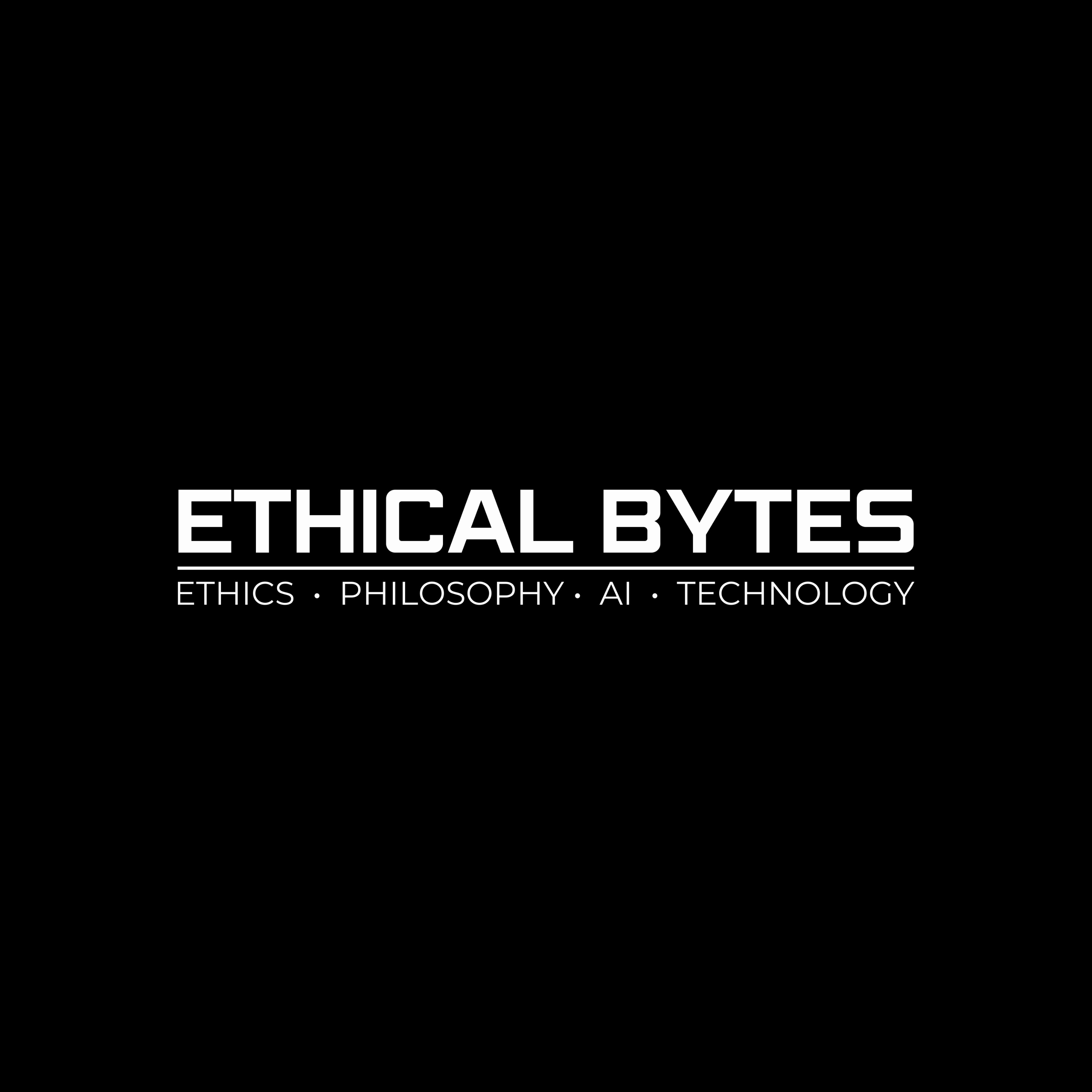Is AI Antithetical to Human Nature? (pt 1)


When all is said and done, does AI truly enhance our humanity, or does it undermine it? In this episode, our host, Carter Considine, draws on ancient Greek philosophy to determine whether AI can coexist with or disrupt the essence of what makes us, us.
He begins the discussion with Aristotle’s teleological view of human nature–our phusis. Humans, like all beings, have an intrinsic purpose—flourishing through rational thought and intentional action. Technē, or human skill and creativity, is what allows us to transcend our natural state by crafting tools and artifacts to fulfill specific purposes.
Modern thinkers, such as Francis Bacon, Charles Darwin, and Jean-Paul Sartre, evolved the concept of human nature from a fixed essence to a more fluid, malleable construct. This eventually paved the way for transhumanism, which views human nature as something that can be shaped and enhanced by technology. Philosophers like Martin Heidegger warn against the dangers of technology when it transforms nature and humanity into mere resources to be optimized, as seen in his concept of gestell (enframing).
Tune in next week for part 2 of this fascinating conversation!
Key Topics:
- Is AI Antithetical to Human Nature? (00:00)
- The Foundations of Human Nature (01:10)
- The Modern Revision (04:42)
- Wrap-Up: Tune in Next Week for Part 2 (09:12)
More info, transcripts, and references can be found at ethical.fm
The rise of artificial intelligence has sparked intense debate about humanity’s connection to the artificial, challenging our understanding of what makes us unique. Does embracing AI mean undermining our humanity, or could AI enhance and even expand what defines us as humans?
This episode explores the Greek concepts of phusis (nature) and technē (craft, art, or skill) to illuminate the relationship between humans and technology. By tracing the evolution of human nature through modernity and examining techno-optimism, we can assess whether AI poses a threat to human essence or offers an opportunity for its enrichment.
The Foundations of Human Nature
Discussions about human nature often begin with the Greeks, who are credited with “discovering” the concept of nature (phusis). We will first focus on Aristotle’s philosophy, tracing its influence on modernity to more contemporary perspectives, like transhumanism and techno-optimism.
Aristotle and Human Nature
Aristotle viewed human nature as teleological, meaning that humans, like all natural entities, have an intrinsic purpose or goal (telos). According to Aristotle, phusis (nature) is an internal principle that directs a being toward its telos. For example, when provided with sunlight, water, and nutrients, an acorn naturally grows into an oak tree because that is inherent to its nature. Similarly, humans have a nature. our telos is achieving enduring happiness or flourishing (eudaimonia), guided by reason and purposeful action (Nicomachean Ethics, I.7). The capacity for rational thought and intentional creation (technē) distinguishes humans from other animals.
Technē refers to the human ability to craft or create through skill, technique, and knowledge. It aims to fulfill specific goals with intentionality, often shaped by practical human needs—such as building houses, sculpting statues, or developing technology (Nicomachean Ethics, VI.4).
Unlike natural objects, artifacts produced through technē derive their form from an external agent (e.g., a craftsman, artist, or physician). Technē is associated with poiēsis (production), combining intention with agency. For instance, a chair does not emerge naturally but requires human skill and intervention.
Gerard Naddaf, in The Greek Concept of Nature, highlights the importance of technē in human progress and culture. He writes, “To query the origin of art is to query the origin of society, for it is inconceivable that society could evolve without technē” (34). Through technē, humans create what goes beyond the capacities of nature, demonstrating their unique role in shaping the world.
The relationship between Phusis and Technē
In Physics (II.8), Aristotle explains that while technē often imitates phusis, they operate differently. For instance, a physician uses medical knowledge (technē) to support the body’s natural healing processes (phusis). Phusis operates for its own sake, whereas technē works for an external purpose, such as utility or aesthetic value.
While humans are defined by phusis, technē allows humans to transcend their natural state. Through technē, we create tools, institutions, and cultural artifacts, demonstrating our dual capacity to live both by nature and beyond nature. This duality raises a pressing question in the era of artificial intelligence: does this new form of technē enhance and collaborate with human nature, or does it represent a disruptive force that fundamentally challenges it?
The Modern Revision
The Enlightenment marked a significant shift from the Aristotelian worldview. In Novum Organum (1620), Francis Bacon critiqued the Aristotlean framework, discarding concepts like telos and formal cause. Bacon, the creator of the scientific method, argued that humanity could harness technology to overcome the limitations imposed by nature.
This shift gained further momentum in the 19th century with Charles Darwin’s work On the Origin of Species (1859). Darwin’s theory of natural selection dismantled the idea of humans as products of divine or preordained design, instead presenting them as the outcome of evolutionary processes. Both Bacon and Darwin reframed the question of human nature as an empirical inquiry: are humans defined by a fixed essence, or are we fundamentally malleable, shaped by evolution forces and technological innovation?
By the 20th century, existentialist philosophers like Jean-Paul Sartre reset the viewpoint on human nature. Sartre rejected the notion of a predetermined nature, declaring that “existence precedes essence.” Humans are ultimately free to define themselves through their choices, emphasizing individual meaning over being trapped by our own predefined essence.
These shifts laid the groundwork for transhumanism, a movement that sees human nature as fluid and malleable, capable of being reshaped by technology.
Heidegger, Technē, and the Grotesque Expansion of Technology
Martin Heidegger, one of the 20th century’s most incisive philosophers, approached technē with both awe and caution. While Aristotle saw technē as a harmonious extension of phusis, Heidegger warned that modern technology had fundamentally departed from this balance.
Heidegger argued that technology appropriates nature as a means to an end, transforming the natural world into a resource to be exploited. In his essay The Question Concerning Technology (1954), he introduced the concept of gestell (“enframing”) to describe how technology reduces all things, including humans, animals, and ecosystems, into “standing reserve” valued only for their utility. This process, Heidegger believed, establishes an instrumental and grotesque understanding of the world, where human relationships risk becoming transactional. For example, a casual chat at a bar might devolve into mere networking—a utilitarian exercise devoid of genuine connection (Dreyfuss 1993).
What makes this dangerous, Heidegger argued, is not merely the instrumentalization of nature but the expansion of this mindset and our complete ambivalence towards it. Technology spreads rapidly, reframes every aspect of life, and “drives out every other possibility of revealing [the world]”, then “covers up” this appropriation, leaving us to feel as if nothing has changed. In other words, technology blinds us to the fact that it is, at its core, revealing the essence of the world in a completely grotesque fashion. Imagine only understanding the world through mere data; the fact that this doesn’t shock and appall you is evidence of our ambivalence towards the reframing of technology and our complete ignorance of what is being lost to us. We are left trapped in a mode of being defined entirely by technological efficiency.
Heidegger lamented the loss of the relatedness between technē and phusis, which he believed was essential for any meaningful craft. Without this relatedness, he warned, technē devolves into “empty busywork,” driven solely by business concerns. This critique is particularly resonant in the context of AI, where systems designed to mimic human behavior often prioritize utility over any deeper engagement with human values or purpose.


